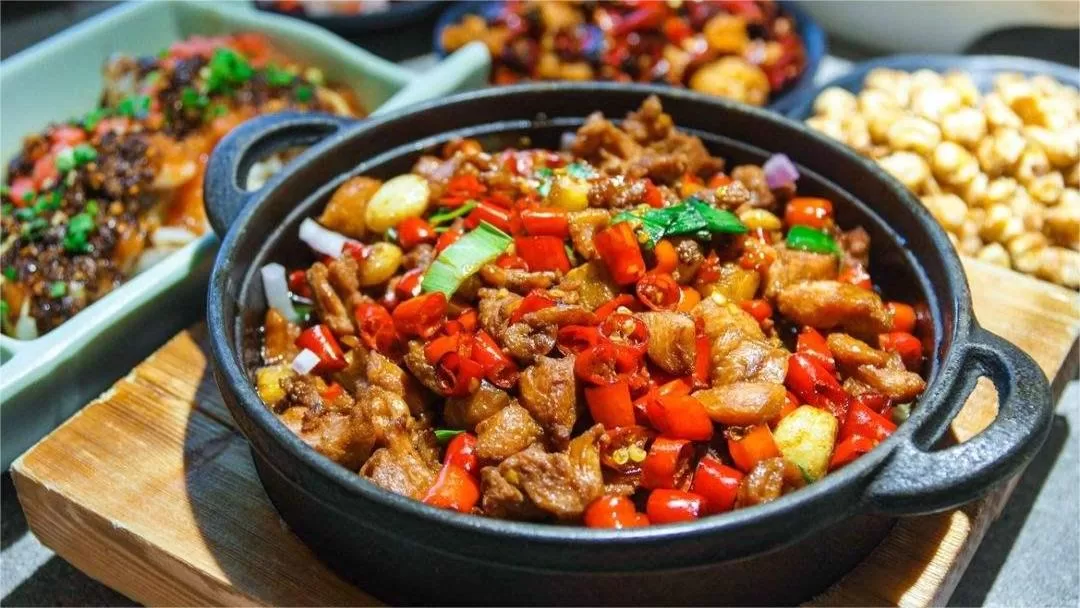Spring Chicken, known as “Quan Shui Ji (泉水鸡)” in Chinese, stands as a traditional and iconic dish hailing from Chongqing, belonging to the distinctive culinary tradition of the Chongqing-style Sichuan cuisine. Renowned for its unique ingredients, bold and spicy flavors, and delightful crispiness, Spring Chicken embodies the essence of the region’s culinary excellence.
Legend has it that the dish is prepared using water sourced directly from a spring, brought to the kitchen through bamboo pipes. The process begins with cleaning and chopping young chickens into small pieces, which are then placed in earthenware pots. The spring water is added to the pots, and the chicken is slow-cooked over an open flame. The essential components include red chili, Sichuan peppercorns, green garlic stems, aged yellow ginger, and a handful of pre-soaked black shiitake mushrooms. The result is a succulent and flavorful dish known as Spring Chicken.
In the mid-1980s, most residents in Nanshan, a district in Chongqing, made a living on flower cultivation. However, Li Renhe, a local villager, went beyond the norm. In addition to tending to flowers and vegetables, he opened a small eatery, known in Chongqing dialect as “Yao Dianzi,” catering to travelers passing through, offering them a taste of home-cooked dishes to satiate their hunger. Behind the eatery was a deep well, sourcing water from a mountain spring, leading to the early naming of the establishment as “Quan Shui Shi Dian” or “Spring Water Eatery.”
In 1993, during a casual conversation about chicken dishes with friends, Li Renhe decided to experiment. He selected a rooster from the coop, slaughtered and cleaned it, cut it into small pieces, seasoned it with salt and ginger, and deep-fried it in nearly fully heated vegetable oil. After a few minutes, he poured out some of the oil, added a specific proportion of spring water, and a pre-prepared mix of Sichuan peppercorns, dried chili peppers, garlic, fermented black beans, rock sugar, and other seasonings. The mixture was then stir-fried and simmered for about 20 minutes until the dish was ready to be served. Thus, a dish characterized by its “numbing, spicy, hot, fresh, fragrant, and tender” qualities was born.
To promote both the dish and the eatery’s location, Li Renhe decided to name it after the eatery, “Quan Shui Ji.” Due to its wooden structure, customers affectionately referred to it as “Mu Lou Quan Shui Ji” or “Wooden Tower Spring Chicken.” As more and more patrons flocked to taste the unique flavors of Spring Chicken, the name “Mu Lou” became synonymous with the dish. Eventually, the eatery officially adopted the name “Mu Lou Quan Shui Ji,” marking the birthplace of the first Spring Chicken restaurant. Subsequently, nearby villages followed suit, creating a bustling street dedicated to Spring Chicken, solidifying its status as a culinary phenomenon.


